




 [Rundweg neuere Geschichte]
[Rundweg neuere Geschichte]
Dorstener Geschichte - Station 22: Shipping
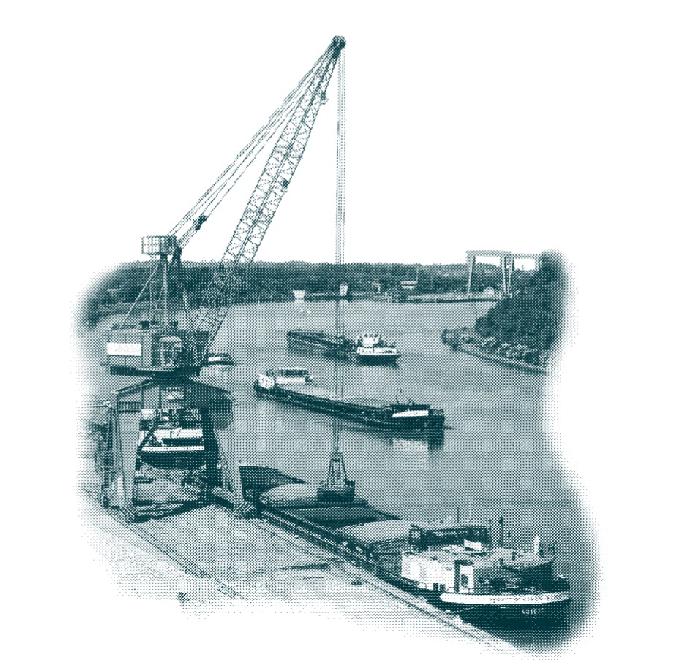
The tablet was baptized on the canal and later moved to Atlantis.
The 22nd history station was opened on the Wesel-Datteln Canal to commemorate the tradition of shipping in Dorsten without getting wet from above. A small band was posted on the museum ship, whose music was blowing over and creating a nice atmosphere together with the boats sloshing in the background.
Together with the Lions Club Dorsten and some students from the Petrinum grammar school, the city of Dorsten created the board on the canal. "It was probably a rush order this time," said Mayor Lütkenhorst, after all the story board should be ready in time for the 75th anniversary of the canal. "So the concrete is just hard and there is still a bit of sand around it," laughed Lütkenhorst.
The board tells how the Romans introduced shipping on the Lippe and how the canal construction began in 1915. Interrupted by the wars, the completion of the building was delayed so that the opening of the canal did not take place until 1930. (Dorstener Zeitung, June 4th, 2005)
|
|
12 v. - 16 n. Chr. |
_ |
The Romans invade "Free Germania". They use the Lippe as a transport route and set up several marching camps in the Holsterhausen area. | |
|
Innocent IV returns to Rome triumphantly from exile in France. 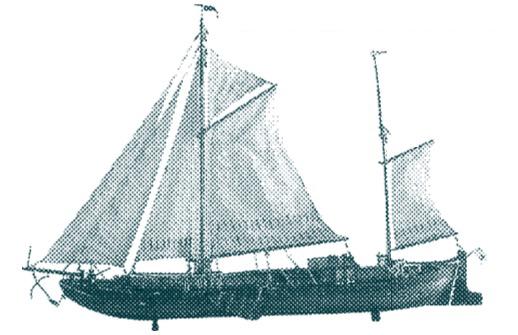 The “Dorstener Aak” - a common type of ship on the Lippe and Lower Rhine | _ |
1251 |
_ |
The Archbishop of Cologne gives Dorsten city rights. As a trade route, the Lippe is of great importance for the city's economic boom, so that Dorsten becomes a member of the Hanseatic League. In addition, numerous shipbuilding workshops (“positions”) were built in the Lippetal over the next few centuries. |
|
|
1766 |
_ |
The Prussian government is building the “Kohlhaus” near the city. Here the coal, which is brought over the land route ("Gahlener Kohlenweg") from the early mines on the Ruhr, is loaded onto ships and brought over the Lippe to the Lower Rhine and Holland. | |
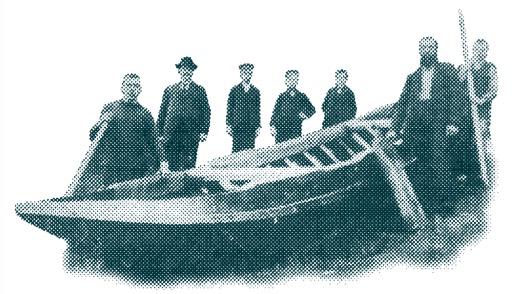 The Ratte shipbuilding workshop around 1890 |
19. Jh. |
_ |
In the course of industrialization and the expansion of the railway network, shipping on the Lippe (“Treideln”) comes to a standstill. The wooden ships manufactured in Dorsten are no match for the competition from larger iron ships, so that the shipbuilding trade becomes meaningless. | |
|
Albert Einstein publishes his general theory of relativity.
| _ |
1915 |
_ |
The Prussian state begins building the Wesel-Datteln Canal (WDK), which has been delayed by the war and the turmoil of the post-war period. In order to achieve a route that is as straight as possible, which is also navigable for large ships, the Lippe in Dorsten has to be relocated to the north over a length of 3.6 km. |
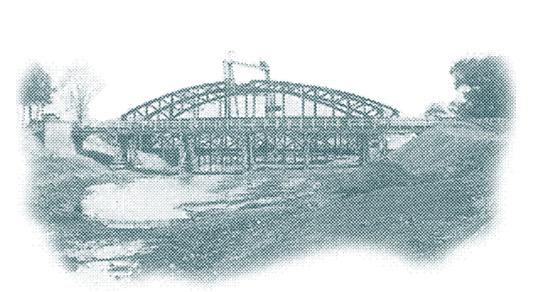 The old wooden bridge over the Lippe has to give way to the new canal bridge. |
1930 |
_ |
The channel is handed over to its destination. It connects the Rhine with the Dortmund-Ems Canal. The new shipping lane is 60 km long, 34.5 m wide and 3.50 m deep. | |
|
|
1945 |
_ |
The blasting of the bridges shortly before the end of the war brought shipping traffic on the canal to a standstill. | |
|
French Foreign Minister Schuman draws up a plan for the unification of Europe (Schuman Plan).
| _ |
1950 |
_ |
After the canal was put into operation again (1949), the transport volume of the pre-war period was reached. |
|
Armin Hary wins the 100 m in 10.0 seconds at the Olympic Games in Rome.
| _ |
1960 - 1989 |
_ |
The construction of the second locks (1960-1970) and the extension of the canal (1966-1989) enabled a constant increase in shipping traffic. |
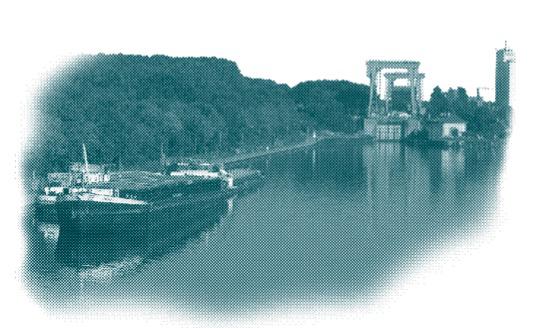 Pier and lock |
2005 |
_ |
In the year of its 75th anniversary, around 23,000 barges are passet though the locks on the canal. With the industrial port of Dorsten, the "inter-municipal industrial park" has its own direct access to the European waterway network. |
[zurück]
Daten und Fakten
Eröffnung - 02. Juni 2005
Adresse - Konrad-Adenauer-Platz 1, 46282 Dorsten
Geodaten - 51°40'00.99 6°57'52.38
Opening 2005
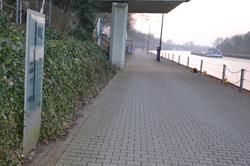
First location on the waterfront
Over the course of time, the canal has evolved from being purely an industrial traffic route into a tourist attraction, and according to Lütkenhorst, it is precisely this direction that must be followed.
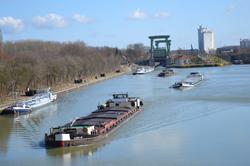
In front of the lock
A connection between old and new, between tradition and progress must be established, "then the canal area and the surrounding area will remain attractive in the future".
The smallest museum in Dorsten
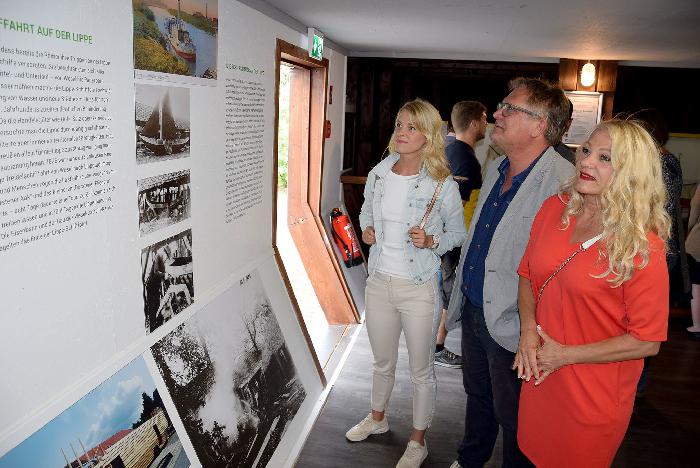
A ship has anchored in front of the Atlantis leisure pool: from now on, the replica of the historic cargo ship "Dorstener Aak" invites those interested to immerse themselves in the history of the city, the Lippe River and shipping at that time.
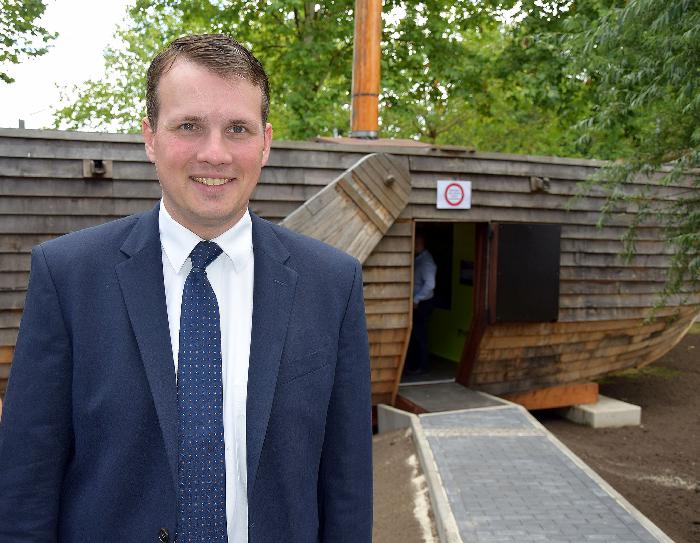
The proud mayor in front of the replica of the barge
Reopening on July 4, 2019
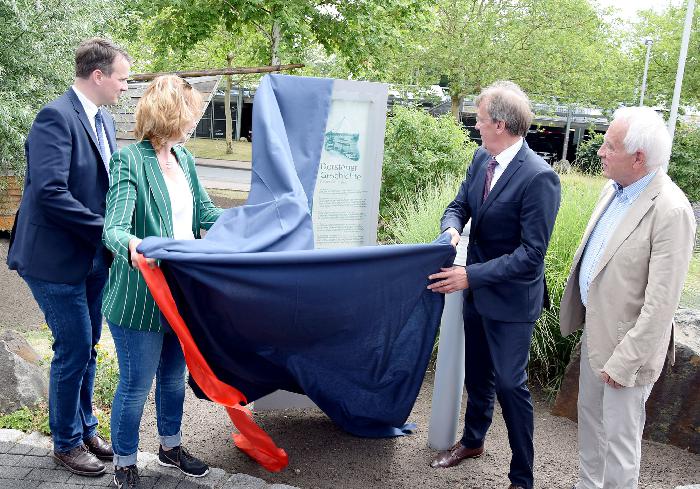
In addition to the exhibition, the history station about shipping in Dorsten in front of the Aak was also unveiled. It was previously located on the canal.
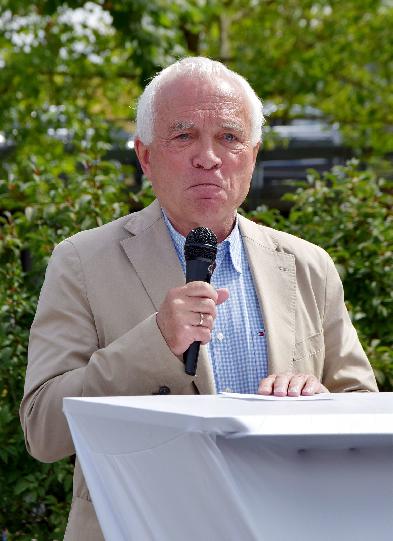
There it was a bit lost, says Dr. Josef Ulfkotte.

